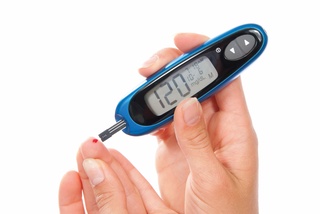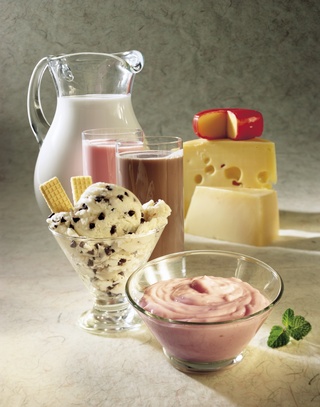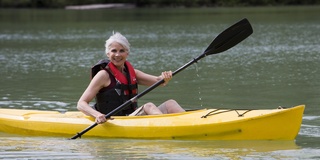Slowing Kidney Disease
Having your kidneys work — even a little — can help you feel better and live longer. If you can slow your CKD, you can delay the need for treatment of kidney failure. The types of changes you might make to help your heart or the rest of your body will help your kidneys, too. Here are some things you can do — or avoid — to protect your kidneys:

-
Keep Your Blood Sugar In The Target Range. High blood sugar harms blood vessels, including the nephrons in the kidneys. If you have diabetes, your doctor will give you a target for fasting blood sugar and for 2 hours after you eat. Test your blood sugar often to see how it changes based on what you eat and how active you are. Cut back on added sugars and refined carbs, like bread, cakes, and rice, if you have not done this yet. Take walks or find other ways to be active. Take your diabetes medicine(s) as prescribed.
-
Keep Your Blood Pressure In The Target Range Your Doctor Gives You, Too. Even if your blood pressure was low your whole life, it may be high now — and, it may be hard to control. It is normal in CKD to need more than one blood pressure medicine. Check your blood pressure at home. Keep a log of the results so you can tell your care team when it is high or low and what time(s) you take your blood pressure pills. Talk with your doctor if you have side effects; a different medicine might work better for you. Exercise can help lower blood pressure, too.
-
Lose Weight If You Are Overweight. The 10–year CARDIA study of young people (average age of 35) found that the more people weighed, the faster their kidney function fell. This was true even if they did not have diabetes or high blood pressure. It's hard to lose weight, but it can be done, and there are many ways that can work. Ask for help from your care team if you need it.
-
Don't Drink Soda. A large study has linked drinking one or more regular sodas a day to kidney damage. A second large study found that two or more diet sodas a day can lead to kidney damage or make it progress faster.
-
If You Smoke Or Use Street Drugs, Try To Quit! Smoking and most street drugs can harm the kidneys. Of course, if quitting was easy, everyone would do it. There are a number of ways to quit smoking—from going cold turkey to patches, nicotine gum, or e–cigarettes. Even cutting back may help. If you use street drugs, you may need a rehab program. Talk to your care team if you need help to quit a habit that is harming your health.
-
Balance Your Blood pH. A healthy blood pH is between 7.38 and 7.42. When the kidneys don’t work well, they can fail to keep the acid–base balance in your body. Acid can build up from protein foods you eat. Grains and protein foods like meat, eggs, dairy, beans, and peas form acid wastes then they break down. Your body needs protein for muscles and self–repair. But, most of us eat a lot more protein than we need. A low-acid diet (with lots of veggies) is one way to help kidneys last longer, at least if you are older. Ask your doctor if sodium bicarbonate can help protect your kidneys, too. In tablet form it is very lost cost and works.

-
Eat Less Protein. When protein breaks down, it forms blood urea nitrogen (BUN). Removing BUN is hard on the kidneys. When you eat less protein, you make less BUN, which can help your kidneys last a bit longer. Research has found that eating very little protein can help even more, but this is hard to do — and there is a risk of malnutrition.
-
Eat Less Phosphorus. Phosphorus is found in meat, poultry, fish, dairy, nuts, beans, and cola drinks. Weak kidneys can’t remove as much phosphorus from your blood. When your levels are too high, your bones can become weak.
-
Limit Shellfish. Research has found that a toxin called domoic acid in shellfish and some fish that eat algae can harm kidneys — in mice. People are not mice. But, the really troubling finding was that very tiny levels of the toxin could harm kidneys. Shellfish also have high levels of purines, which can be a problem if you have gout. So, it may be wise to cut back on shellfish if you eat it a lot.
-
Skip Canned Foods. Most food cans in the U.S. are lined with bisphenol A (BPA). BPA has been linked with high blood pressure, diabetes, and obesity. Many canned foods tend to be very high in salt or sugar and highly processed, too. Glass jars or shelf safe cartons don’t have BPA.
-
Avoid Certain Pain Pills. “ Non–steroidal anti–inflammatory drugs” (NSAIDs) can cause kidney damage. Kidneys need a strong blood flow to work. NSAIDs reduce blood flow into and out of the kidneys. In most cases, it takes years of daily use for NSAIDs to cause CKD. But, once CKD is present, NSAIDs can make it get worse faster. Talk to your doctor about treatment options for pain that won’t further harm your kidneys. If you take one tablet here and there and your kidneys still work, drink a full glass of water with it.
-
Need A Contrast Dye X–ray? Ask For Kidney Precautions. Dye that is injected into a vein for an MRI or CT scan will pass through your kidneys. A dye called gadolinium can cause kidney damage. This dye can also cause a rare problem called nephrogenic systemic fibrosis (NSF). NSF can make the skin and organs thicken, and can be fatal. There is no treatment for NSF. If a doctor orders an X–ray dye test, ask if there are other ways to learn the same things. Would an ultrasound work, instead? If you must have contrast, be sure to tell the radiologist about your CKD. He or she may be able to dilute the dye or give you an IV with sodium bicarbonate to wash it out of your blood.
-
Antioxidants May Help You. Every cell in your body needs oxygen. But, too much oxygen in the wrong places can “oxidize” and cause damage, a lot like rust. Antioxidants help protect your cells, and may help your kidneys. Ask your doctor if antioxidants like these might be worth taking.
Fish oil can help slow CKD that is caused by a disease called IgA nephropathy.
Get Moving!

CKD is a risk factor for heart disease and stroke. The same diseases that harm the kidneys also tend to damage the heart and blood vessels. The good news is, moving gets your blood pumping, which boosts blood flow to your kidneys — and helps your heart. So, for your body, exercise is a win–win. It may even help slow the rate of CKD.
The goal is 30 minutes of active moving each day. And, the 30 minutes don't have to be all at once. You can break your exercise into 10–minute blocks if you like.
Thinking of starting an exercise plan? If it's been a while since you've been active, talk with your doctor first. Start slow, and build up time, distance, or weight slowly. Track your progress so you can see how you're doing. You can even set goals and reward yourself when you reach them.
Exercise does not have to be a boring jog on a machine at a pricey gym. Here are some other options you might think about, and you can come up with more on your own:
-
Walking is Great Exercise, and if you have a loved one as a partner, you get together time, too. If the weather is nice and you live in a safe place, you can enjoy an outdoor walk. Or, many people walk in malls or at indoor tracks so they don't miss out. A jog–walk (trading off jogging and walking) will give you a more intense workout.
-
Take Up a Sport. From bowling to tennis to badminton, if there is a team sport you like, you can spend time with others and boost your fitness at the same time.
-
Do Some Work. Paint a fence or a wall. Get out in the garden and pull some weeds or trim the shrubs. Mow the lawn with a push mower. Vacuum a couple of rooms. You’ll get something done, feel good about yourself, and be active.
-
Dance, Skate, Play! Whether you jump on a trampoline, paddle a canoe, or take your partner out for a spin, moving is moving. Think about what you liked as a kid–it might give you some ideas of things to try.

